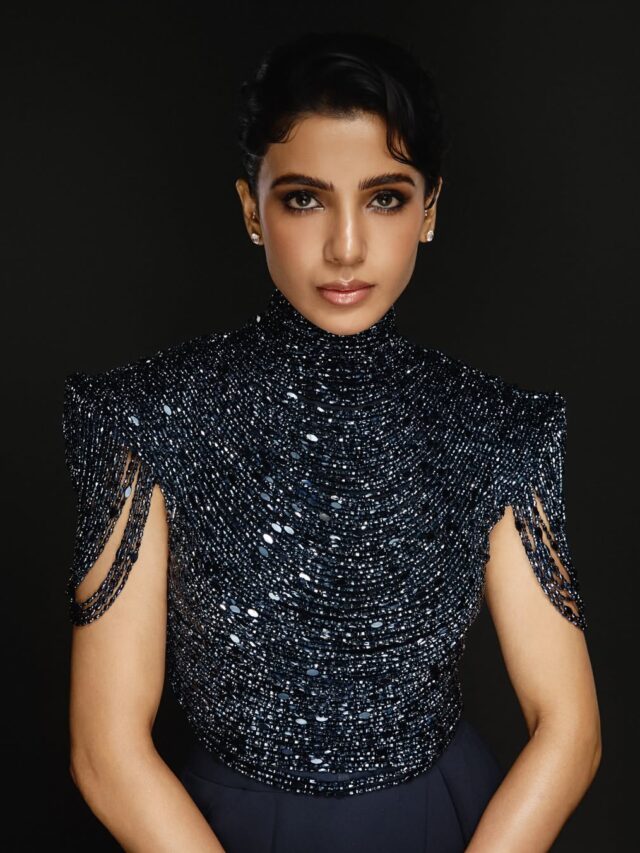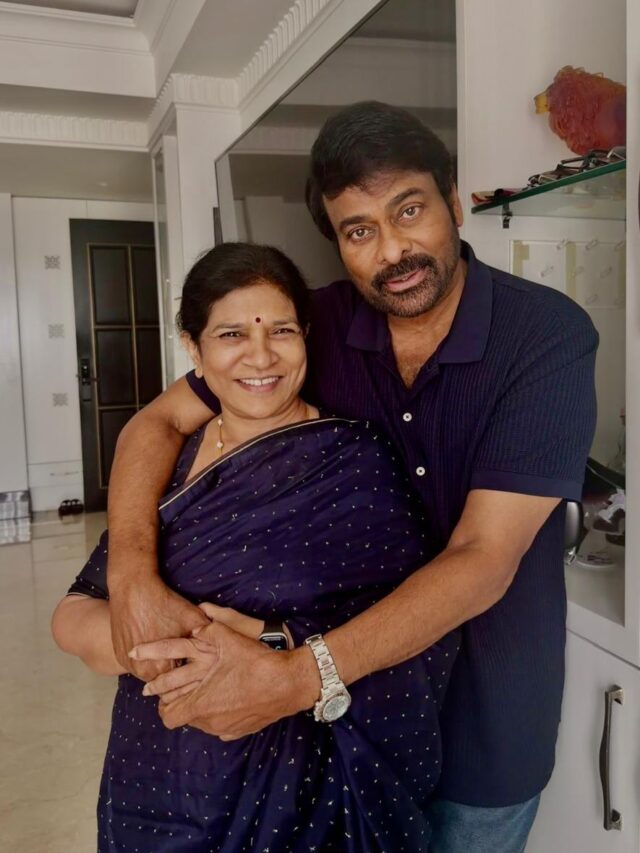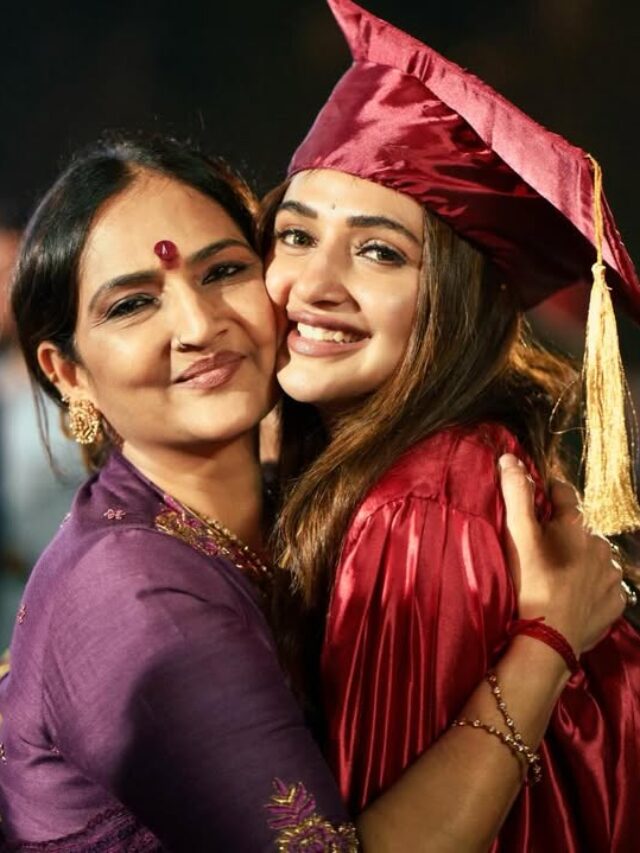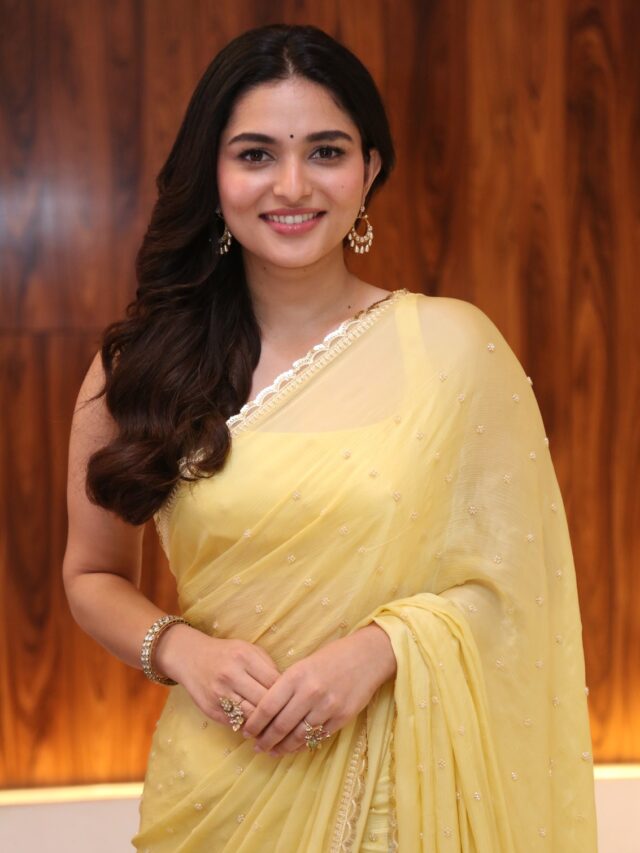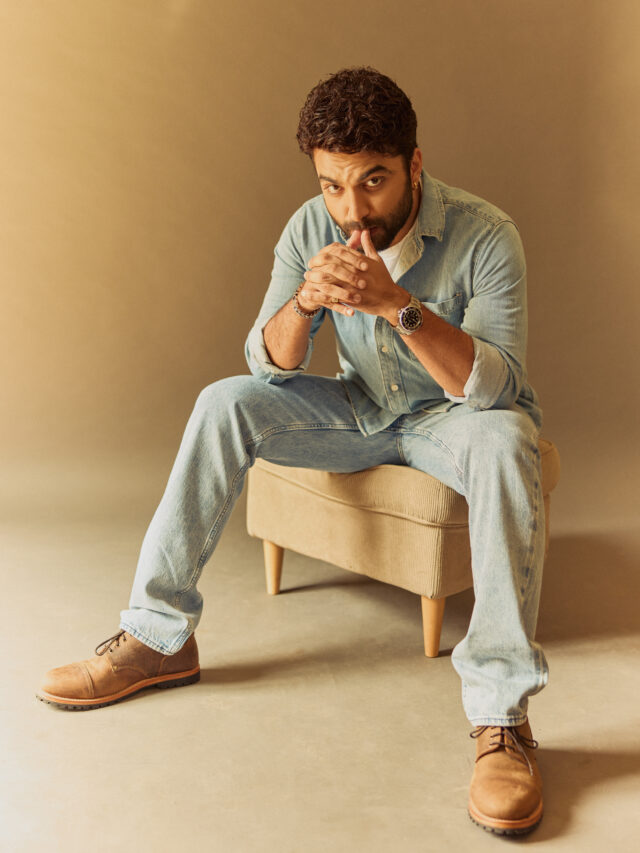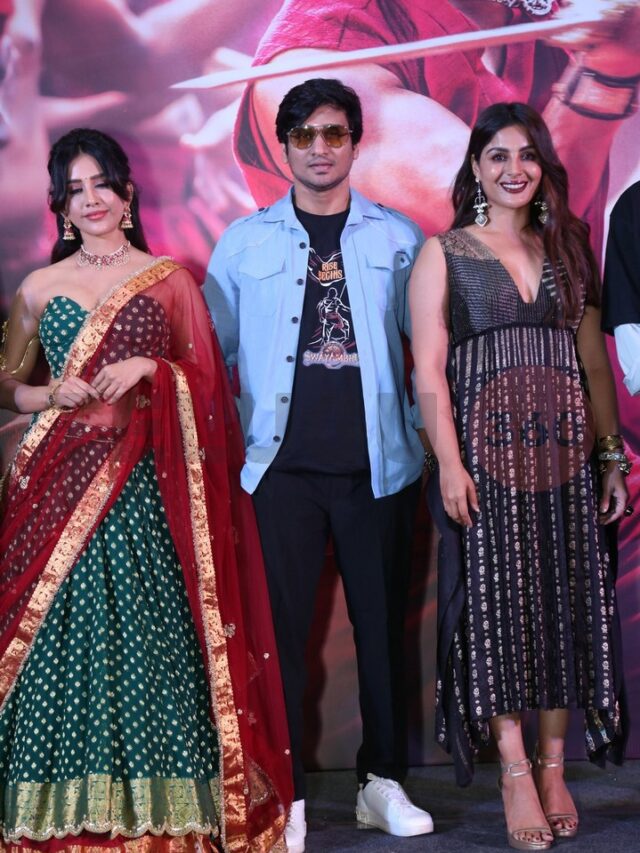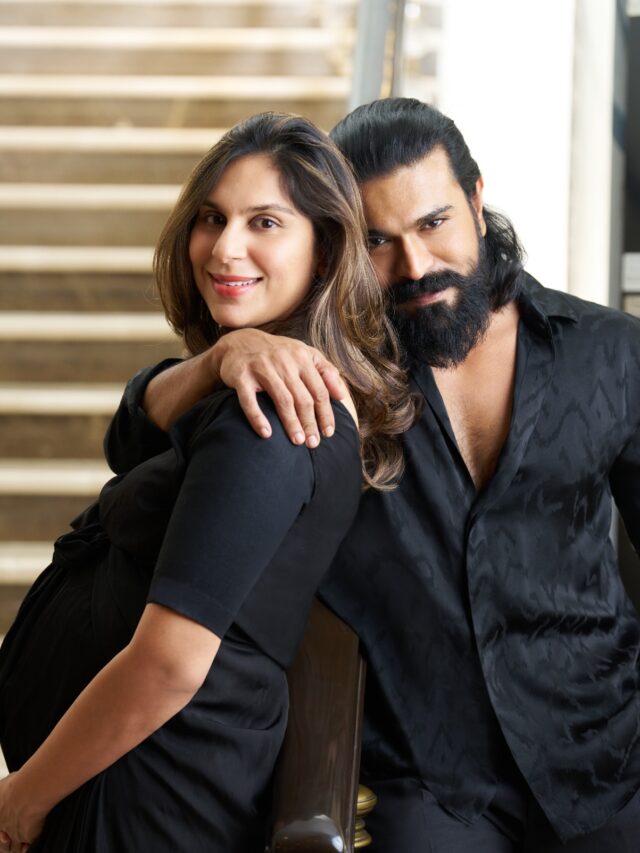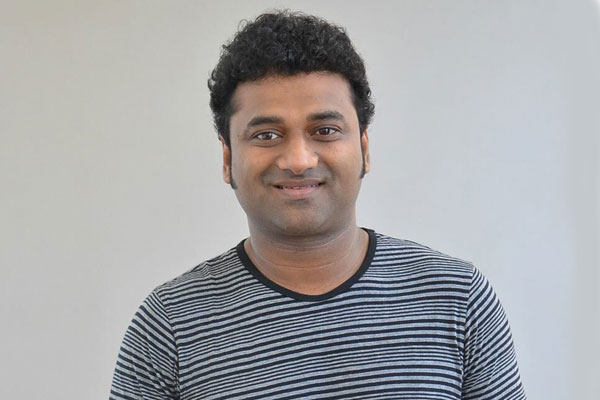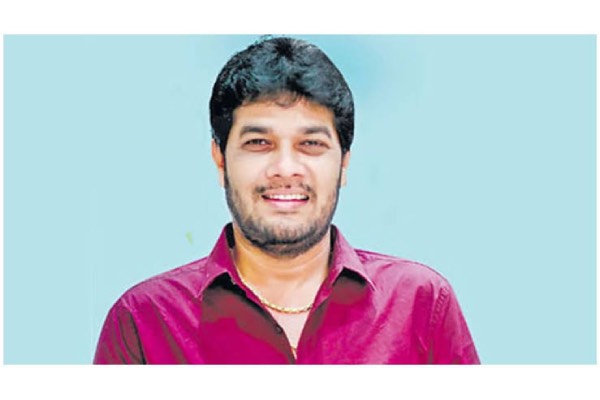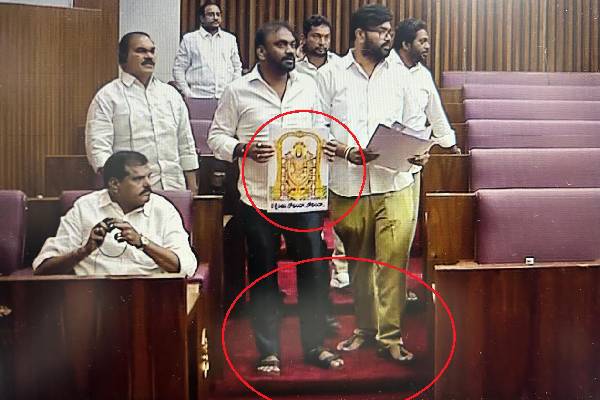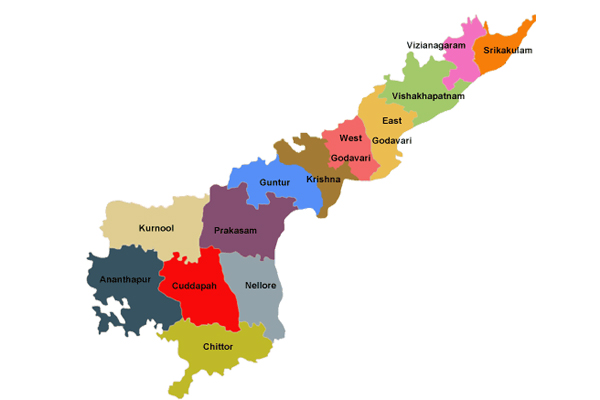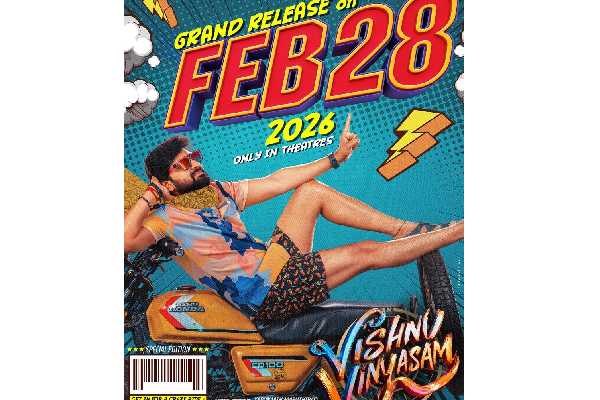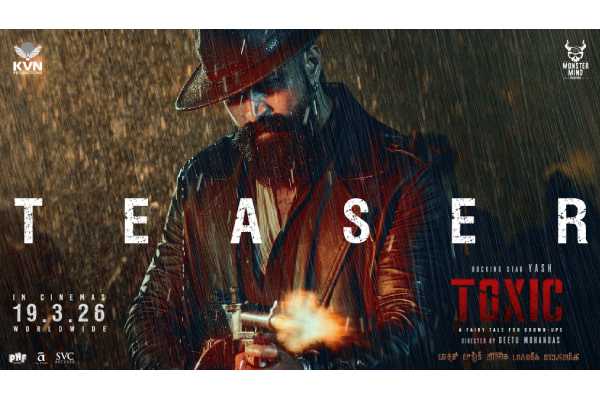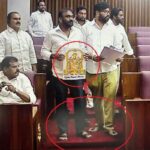Notwithstanding his failures in politics, there are enough lessons from Chiranjeevi’s filmography that will inspire the newcomers and experienced actors to mould careers as successfully as him. But the question is: Can he re-invent himself to stay relevant after his 150th film ?
READ PART 1 HERE
By the end of the 80s, Chiranjeevi had scaled dizzy heights in stardom. From Supreme Hero to Megastar, he had seen all adulation from toddlers to teenagers and urban crowds to the ladies and became a darling at the box-office. Testing mostly urban themes and middle-class subjects, he had rotated films with almost all the leading producers, directors, and production houses of the day. Some of the most notable hits had him establish as a demigod who knew few failures – Khaidi, Mantrigari Viyyankudu, Sangharshana, Goonda, Devanthakudu, Mahanagaramlo Mayagadu, Challenge, Intiguttu, Donga, Adavi Donga, Vijeta, Magadheerudu, Rakshasudu, Donga Mogudu, Pasivadi Pranam, Swayamkrushi, Yamudiki Mogodu, Khaidi No 786, Attaku Yamudu Ammayiki Mogudu, State Rowdy – they established him as the No.1 in the Telugu film industry.
As a star who revelled in mass themes, he became a linchpin for scripts and even novels. One writer Yandamoori Veerendranath admits that for years, before he met Chiranjeevi, he started writing a novel called Abhilasha in Andhra Jyothi periodical with a hero character coincidentally named Chiranjeevi. And as poetic justice would have it, Chiranjeevi was named as the hero of the film after the rights of Abhilasha novel were bought by producer KS Rama Rao. Similarly, even when the film Chantabbayi was planned by the makers, public opinion swung to the choice of Chiranjeevi as the most one because of his talent in comic timing – which underlies his versatility. Apart from such universal adulation, Chiranjeevi also had the luxury of selecting scripts with off-beat themes with noted directors like Bapu, Vishwanath, Bharatiraja and also a home production with K Balachander (Rudraveena). The nineties arrived with another blockbuster hit Kondaveeti Donga, followed by another blockbuster – Jagadeka Veerudu Atiloka Sundari – which created a sensation amidst floods sweeping the coastal Andhra. That film reinforced the charishma of a Megastar; it was widely reported that the crowds whose homes were washed away missed their food but not the tryst with their Supreme Hero. The movie starring Chiru, Sridevi and Amrish Puri was hailed as a new age classic which also set a new trend in Tollywood –the trend of Bollywoodisation of Telugu films.
This Bollywoodisation of Telugu films- Is Chiranjeevi the only one credited with it ? Not exactly. Even Superstar Krishna did it in the 1980s and to some extent actors like Venkatesh and Nagarjuna also brought in talent from Bollywood to spice up the Telugu cinema. NTR did it way back when he got talents like Mohd Rafi and Shankar Jaikishen to work for Telugu film songs. But Chiranjeevi got the credit for almost doing it with gusto and consistency in the 1990s backed by producers like Creative Commercials and Vyjayanti Movies. But Chiru epitomised this phenomenon as he kept pushing new frontiers. After Jagadekaveerudu, Kodama Simham got released – a slick version of The Good, the bad and the Ugly. Not a superhit but made money and name for the producer and the megastar.
It is after Kodama Simham that Chiru and his think-tank decided to test the waters in Bollywood directly. This was the phase when Shiva got released with Nagarjuna (subsequently remade in Hindi) and Kshana Kshanam created a sensation with Victory Venkatesh and Sridevi. Two new kids on the block and Balakrishna belting out some mass and class hits gave competition to Chiru for the first time after Krishna and Sobhan Babu have decided to take it easy. He debuted in Bollywood with Pratibandh (a remake of superhit movie Ankusham). Chiru played a trigger-happy cop who protects the chief minister from the evil designs of Spot Nana (played by Rami Reddy, just as in the original). The film had kick-ass action and good relief from Juhi Chawla, it won good name for the dark-looks dude who can dance well and paved way for more films in Bollywood by Chiru. Few flops later, Chiru consolidated his leadership with two back-to-back hits, Gangleader and Rowdy Alludu. And then came the biggest hit in his career, Gharana Mogudu which catapulted Chiranjeevi to the position of the highest-paid actor in the Indian film industry – a fact that got noted in India Today (about Rs.1.25 crores in 1992). With massive hit that completed the biggest hat-trick of his career ever, Chiranjeevi felt emboldened to remake Gangleader in Hindi as Aaj Ka Goondaraj. The movie sank without a trace and what followed later gave no respite to Chiranjeevi for a number of years. He tested his luck with another artistic movie Apadhbandhavudu by K Viswanath which bombed.
In 1993, he took a long break to work for the most ambitious project of his career – Mutha Mestri – the rise of a contract labourer who became the Chief Minister of the State. The move was widely seen as what haunted for the rest of his career, a now-ready-now-reluctant Megastar who wants to take the plunge into politics. The film had an excellent story, entertaining narrative and great dialogues but failed miserably at the box-office because many fans didn’t like the idea of a CM-aspirant Chiranjeevi taking a shot at politics. That film put any thoughts of entering politics in the back-burner for Chiru. He tested a multi-starrer next with the legendary ANR – Mechanic Alludu produced by Allu Aravind which bombed again. Chiru then produced another film Mugguru Monagallu in which he plays three roles, inspired by the antics of Kamal Hassan in Michael Madan Kamaraju (not a copy). It bombed. Then he acted in another film with Sridevi – S.P.Parasuram. It misfired again. Chiranjeevi felt he was losing touch with the audience and needed to take a break with another bid to salvage some pride in Bollywood.
He roped in Mahesh Bhatt to remake Shankar’s hugely-successful Gentleman in Hindi. It had some of the hit songs of AR Rahman in Hindi and even used the title as THE Gentleman (not just Gentleman). Mahesh Bhatt had been directing six films in 1994 – the year in which The Gentleman got released. Nobody heard about Chiru in Bollywood ever after that movie. It was a debacle. But the disaster run continued for Chiru in Telugu too. Three films Alluda Majaka, Big Boss, and Rikshavodu got released in 1995 – the year Chiranjeevi reckons as his worst year in his career – all of them flopped big-time.
Of these, Alluda Majaka made with an older generation heroine Lakshmi as Chiru’s mother-in-law and Ramyakrishna and Rambha as the lead heroines hit a nadir when it comes to generating controversy for Chiranjeevi. It marred his reputation as a stickler for quality and family audience sensibilities. Instead, AM got panned by critics and women groups and family audiences for obsenities and vulgarities. The incident had a lasting impact on Chiranjeevi’s career for two reasons: One, it created huge public outcry from press and sections of audience about the fall in decency and standards of film-making; it alienated forever women fans who were loyal to the Megastar over the years. Two, since the fan associations got divided over the criticism faced by the movie. As a result, a nodal association of fans was created which took control of what and how the fan clubs of Chiranjeevi behaved and reacted to the feedback and criticism about his films. It became a water-shed moment for Chiru fans who were highly fragmented and unorganised hitherto – to usher in bigger and bolder initiatives in social service like the Blood Bank and Eye Bank which followed later.
The controversy of Alluda Majaaka died down but the flops piled up: Big Boss (inspired by Bruce Lee’s Big Boss) and Rikshavodu. Both did more collateral damage to Chiru’s career as he got desperate for a hit while facing a barrage of criticism about lackadaisical story and puerrile content. He took a long break of almost two years to re-connect with fans, re-work on his body-language to suit his age. He re-surfaced with Hitler restored some of his old magic while elevating his character towards more maturity and dignity. Audiences liked his dances but they liked his serious looks and mellowed character even better. He scored another hit Master directed by Suresh Krissna using the same punctuation of the film grammar of Basha starring Rajinikanth. Then a light-hearted romance followed – Bavagaru Bagunnara.
In 1998, Chiranjeevi scored one of the biggest hits of his career in his 130th film – Choodalani Vundi produced by C Aswini Dutt. The film also scored a new trend that was to become a hallmark of all big star movies after the nineties – guarantee of minimum business for the distributors and a share by the hero in the overall revenues. It meant that the hero would put his skin in the game but take more profits if the movie did roaring business, a bait that the distributors took that changed the way business was done for big budget films. Of course, it became a double-edged sword for the industry and raised the budgets for the film-makers. Choodalani Vundi became a cult film in presenting mass action with a classy touch. An improvised version of Master, it gave a new filip to Chiranjeevi’s career while making him more choosy about films. Gone are the days he would act in 14 films in one year, he became selective about chosing his next projects. A number of films came between 1998 and 2002, but only three films stood out: Annayya in 1999, Indra in 2002 and Tagore in 2003. The rest of the films including the much-awaited Anji which bombed.
Of the three films. Indra became a monster hit. It created a sensation in audio release setting an all-time record in sale of cassettes (CDs were unheard of then) but the movie smashed all previous records for Chiranjeevi – a peak peformance that never really got bettered. While Balakrishna’s Samarasimha Reddy came in 1999, Indra made by the same director got released in 2002 with huge impact on many films that used the same format in mass action films. Tagore in 2003 had an energetic take on anti-corruption movements which also became a landmark hit for Chiranjeevi. (The film’s relevance stuck on well till today as a remake of that film Gabbar got made after 12 years with a decent run).
Chiranjeevi’s choice of scripts became more inscrutable after Anji bombed. As his interest started to wane in films with one part of him egging him on to jump into politics, he looked for subjects that uphold his dignity and get him the last-mile outreach with his target audience-voters. There is a huge mass-appeal but also an animal magnetism about his personality that endeared him to the classes if he gets the right balance in a plot. Munnabhai theme looked like a safe bet and thus Shankar Dada MBBS got made with a decent run. But the next two movies, Andarivaadu and Jai Chiranjeeva, bombed again. One film that resurrected his stature again was Stalin. The film had a good show at the box office but the ending was not something that enthused his fans. Had the script not got altered due to the insistence of Chiru, some experts felt the movie would have fared better. But Stalin still gets the highest TRP ratings on satellite TV airings which proves the film has stood the test of time.
His last full-length film was a sequel in Munnabhai series. The movie called Shankar Dada Zindabad didn’t fare well again and left Chiru fans thirsting for a new hit. He acted in few other films like Style and Magadheera enhance his longevity on screen while remaining focused on political aspirations for the last eight years. Now comes the toughest part in his career – to meet the frenzied expectations of his fans and associates to give a decent start to his second innings with a memorable 150th film.
But like Rip Van Winkle returning, Chiranjeevi may find the going different this time. Everything has changed for Chiranjeevi to just think of a simple masala fare film and quietly begin work again. The tastes of audiences are dramatically drifting towards newer and more engaging scripts without regard for vintage and track-record. Even a Rajinikanth or Kamal Hassan had to face flak for their latest movies because of hopeless narration and lack-lustre scripts. In Telugu, there are more than a dozen aspiring stars and superstars competing with everybody with films that want to move the needle. From Chiru’s own family, nine heroes (including his son Ramcharan) have entered the fray and are trying to compete within themselves and with others. Unless Chiranjeevi treats the 150th film as his first film, there is not much that can come out of a routine formula-based mass film because that is what makes him different and his work more relevant now as he enters the crucial second innings. All his contemporaries – Amitabh Bachchan, Kamal Hassan, Rajinikanth and Mohanlal are doing different films which are pushing the envelope for different cinema. Even yesterday’s new kids –Venkatesh and Nagarjuna are trying to reinvent themselves with innovative scripts and multi-starrer films. Redeeming one’s destiny in the 150th film should therefore sound easy for Chiranjeevi if he approaches his work with more seriousness and responsibility than what can appear the easier way out – to make a masala film. This is that crucial juncture which differentiates a mature actor from an actor who gets carried away by fans. It is the lack of appreciation for what the fans want and what the larger audience of class and mass expect that drove many stars in the past to make huge mistakes, eventually driving them out of currency into oblivion – e.g Shoban Babu who relinquished films after many of his films started flopping in the 90s forcing him to cut short his career by atleast five years. Krishna and Krishnam Raju had to face more humiliation at the box office forcing them to give up even character artist roles sooner than later.
In summary, Chiranjeevi had achieved everything that an actor can aspire – fame, fortune, awards, government recognition as well as a following that protect him and his family like tooth fairies. For almost his entire career, he has earned respect as a talented actor who combined the acting prowess of Kamal Hassan and the mass mystique of a Rajinikanth and Amitabh Bachchan. He had created the most comprehensive empire in Telugu film industry with a family that is now well-represented in almost all the supply-chain fields of distribution, exhibition, financing, production and even TV programming (MAA TV) and continually churns out movies of one family hero or the other. Of course, there were controversies in his career too that punctured his halo – whether it is the Uday Kiran controversy, or the Suman episode. But when one looks back, this Megastar has been one of the most benevolent dictators of Tollywood who went about casting his spell on a movie-crazy audience as an underbelly but rose to a position that is enviable for any Superstar – he combined the best practices of whatever he learnt from the leading lights of his age and from the previous generations in building a brand equity that will last forever. Notwithstanding his failures in politics, there are enough lessons from his filmography that will inspire the newcomers and experienced actors to mould careers as successfully as him





